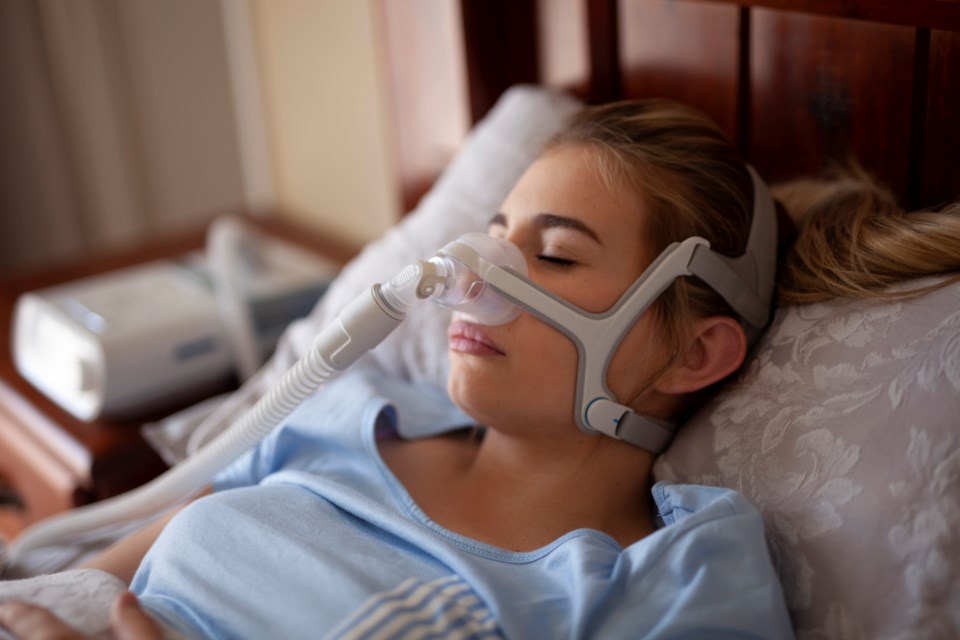Proper sleep is essential to our overall physical and mental health.
“When we look at the elements of maintaining a healthy lifestyle, sleep can often get left out of that equation,” Sarina Gyurkovits, clinical therapist at CanSleep Services, says.
But poor sleep can lead to serious health risks and decreased quality of life.
If you’ve been experiencing constant fatigue or fragmented sleep, you may be suffering from obstructive sleep apnea (OSA).
OSA is a potentially severe yet common sleep disorder that can affect people of all ages, lifestyles, health and fitness levels.
“A lot of people have preconceived notions of sleep apnea and who it affects. People think that they don’t snore, or it only affects men or people who are overweight. But that’s not the case,” Gyurkovits says.
“I’ve had lots of patients who are younger, fit, and women.”
OSA disrupts the quality of your sleep, leaving you with little energy to enjoy or carry out your regular activities.
It occurs when the soft tissues in the back of the throat collapse during sleep and result in partially or completely blocked air passages.
Because the air can’t easily pass the blockage, the brain becomes deprived of adequate oxygen levels.
“Sleep apnea can make it difficult for people to get into a deep sleep phase, and then they start suffering the effects of lack of sleep,” Gyurkovits says.
OSA is characterized by repeated episodes of shallow or paused breathing during sleep. Since they happen while we’re asleep, they can often be left undiagnosed.
Symptoms to watch out for with OSA include fatigue, tiredness, waking up feeling unrefreshed, concentration loss and memory fog throughout the day.
“It’s so easy for people to blame this on other things such as stress, work, or kids. But then you’re screened and diagnosed with OSA, it becomes clear that that’s what it has been all along. It’s a problem that could be solved so much earlier,” Gyurkovits says.
“So many people don’t realize how much lack of sleep can affect their physical and mental health.”
Poor sleep contributes to depression and anxiety, loss of motivation, shorter attention span and irritability. OSA sufferers may find that they wake in the morning with a headache caused by a lack of oxygen.
Daytime sleepiness leads to an increased risk of car accidents and reduced work efficiency.
It also can derail our fitness goals.
“One thing people don’t realize is that sleep can be a key to our metabolism and our appetite hormones, which are regulated during our REM sleep,” Gyukovits says.
If we don’t sleep properly or spend enough time in REM sleep, we can hit a wall with weight loss and fitness goals.
CanSleep Services can help its patients find relief from sleep issues. Its clinics across BC offer sleep education, sleep apnea screening and treatment for its patients.
“We are education-focused and concentrate on helping patients with their symptoms,” Gyukovits says.
“If people have questions about their sleep, they can call us or look on our website. You can always arrange a chat with a sleep therapist.”
If you suspect you might be suffering from OSA, it is easy to test for. CanSleep can provide you with a non-invasive, overnight screening device that measures the quality of your sleep as indicated by your heart rate, oxygen and snoring levels.
The sleep therapist will review your test results with you so you understand their significance and will identify the best treatment option for your lifestyle, whether that’s a CPAP machine, oral appliance, surgery or alternative treatments.
“If you’ve been suffering with this for years and are noticing fatigue and low energy, this could be the first step to being able to wake up feeling refreshed and having the energy to get through the day,” Gyukovits says.
To learn more about CanSleep’s services and start getting a better night’s sleep today, visit cansleep.ca.



